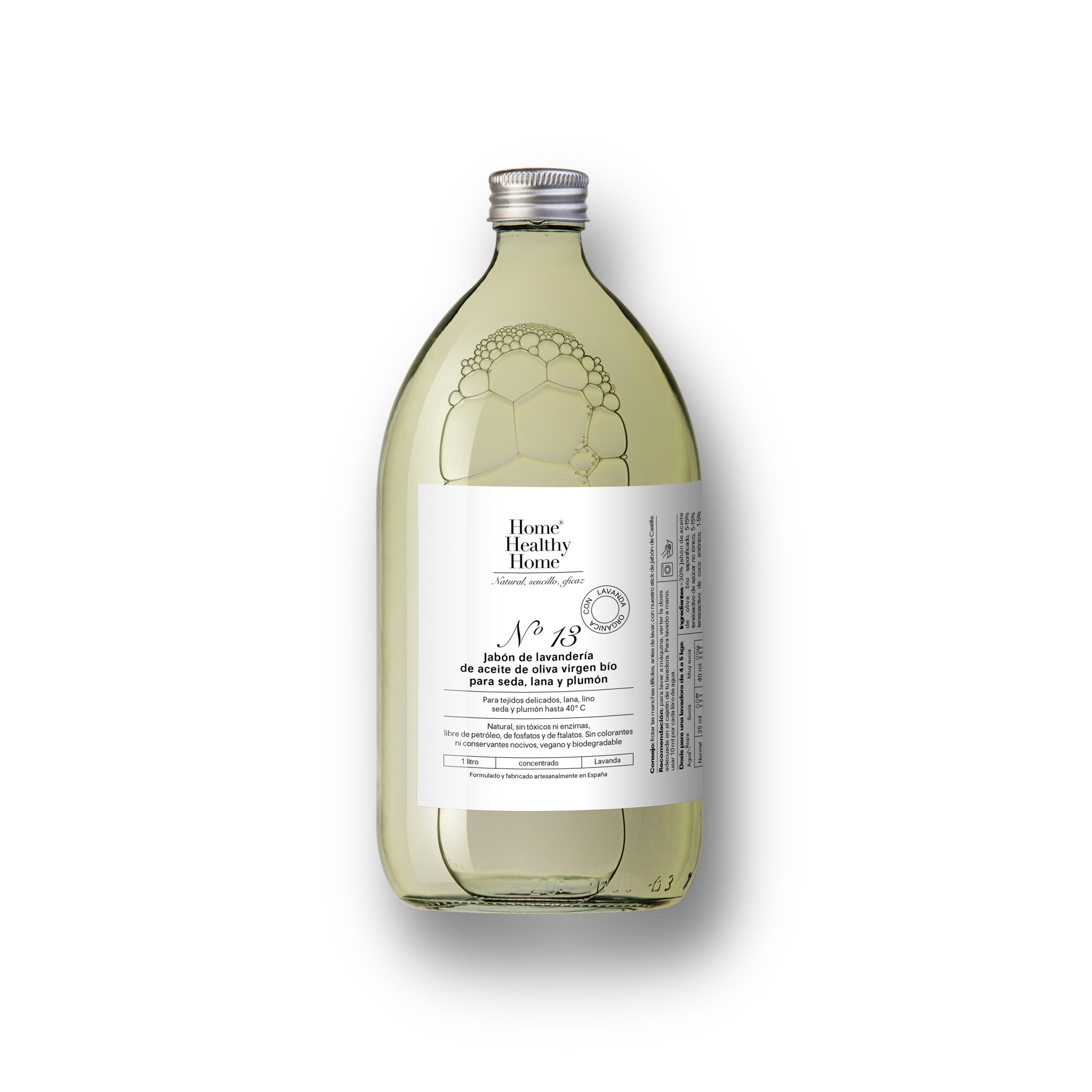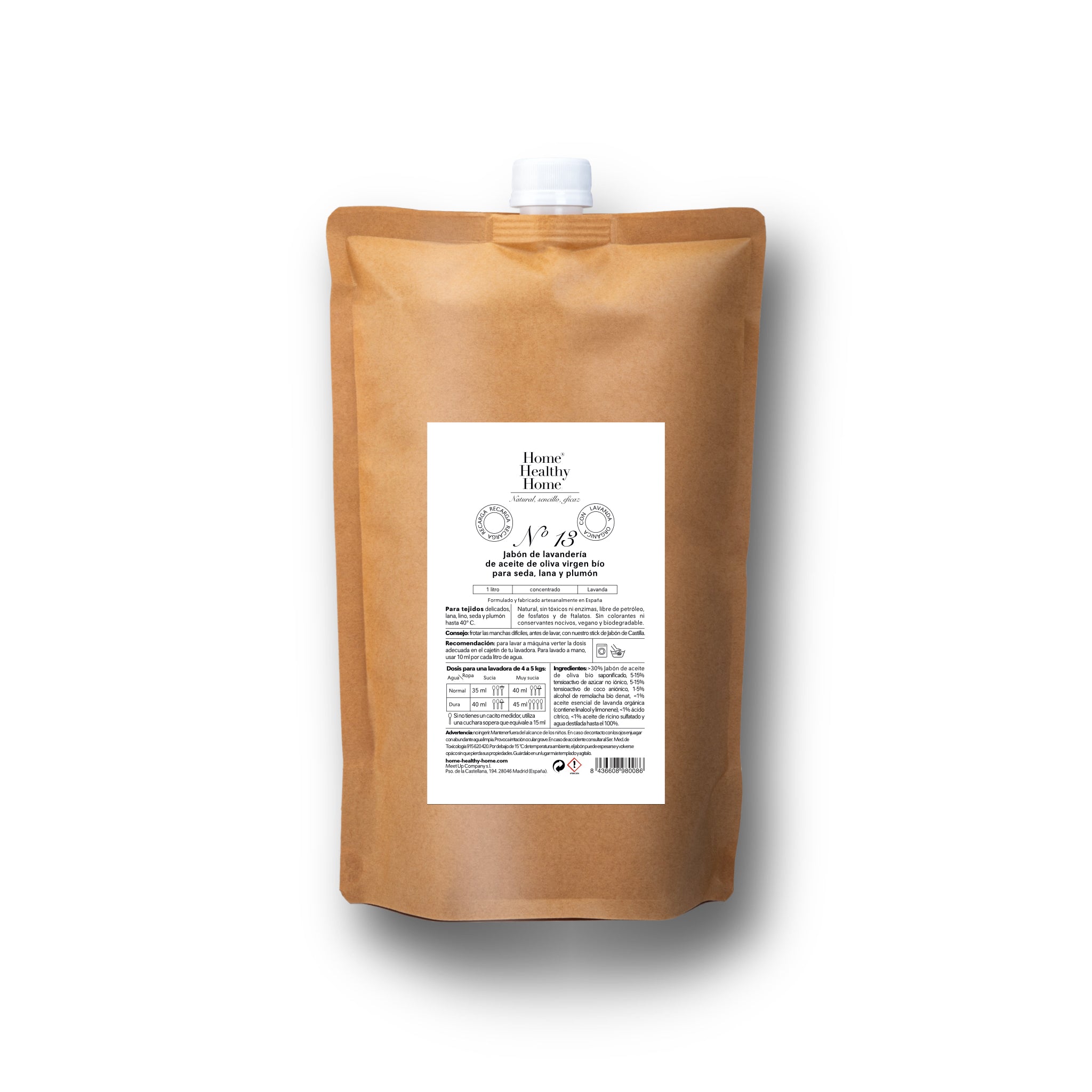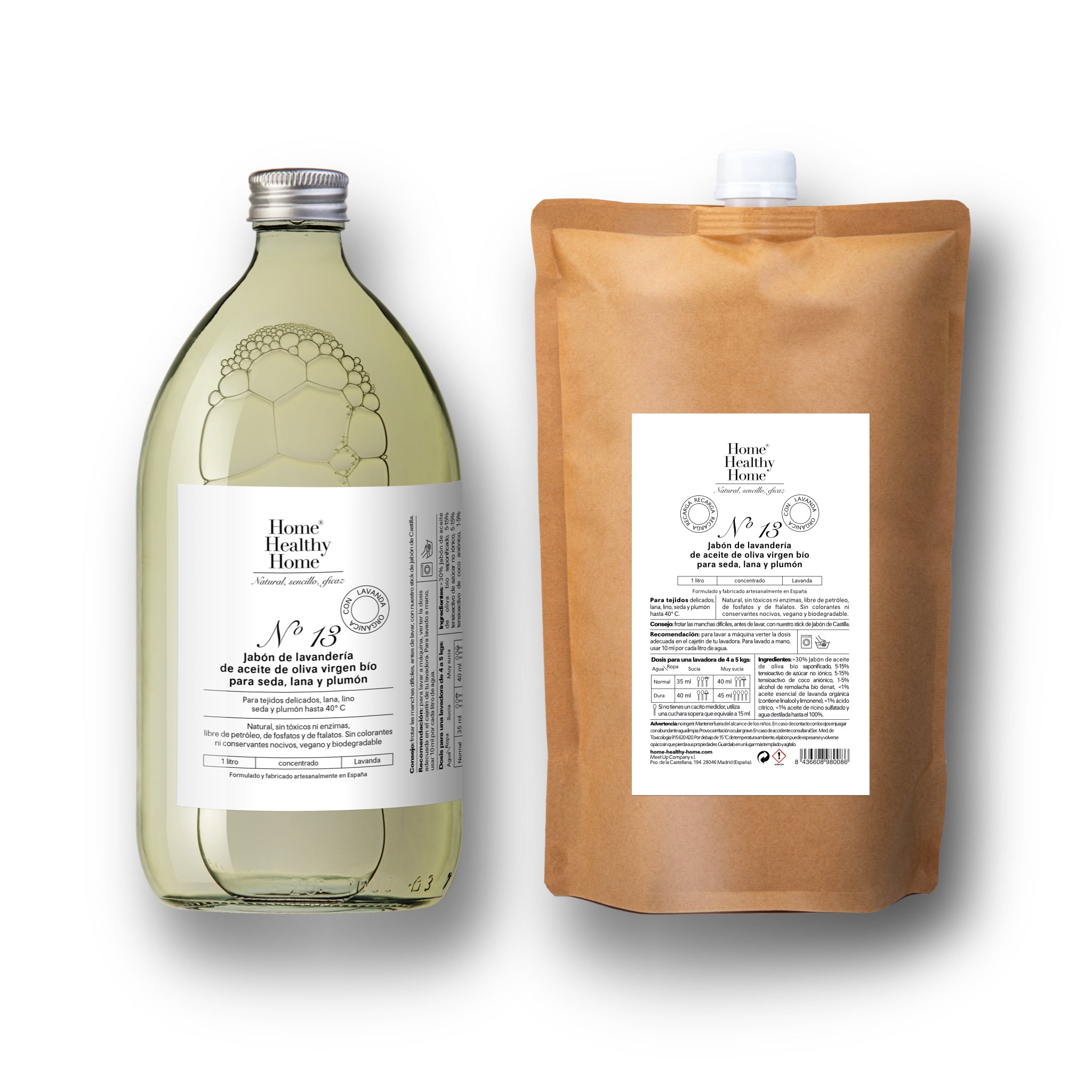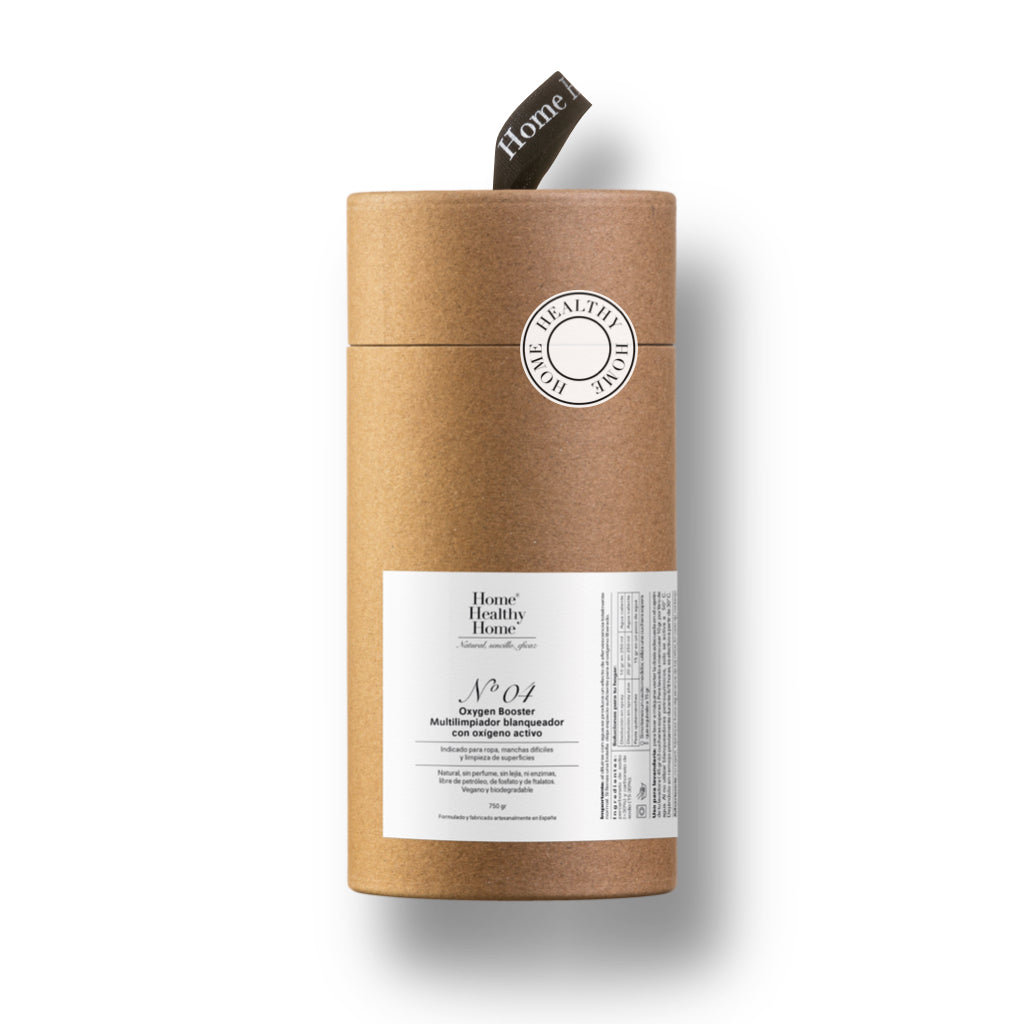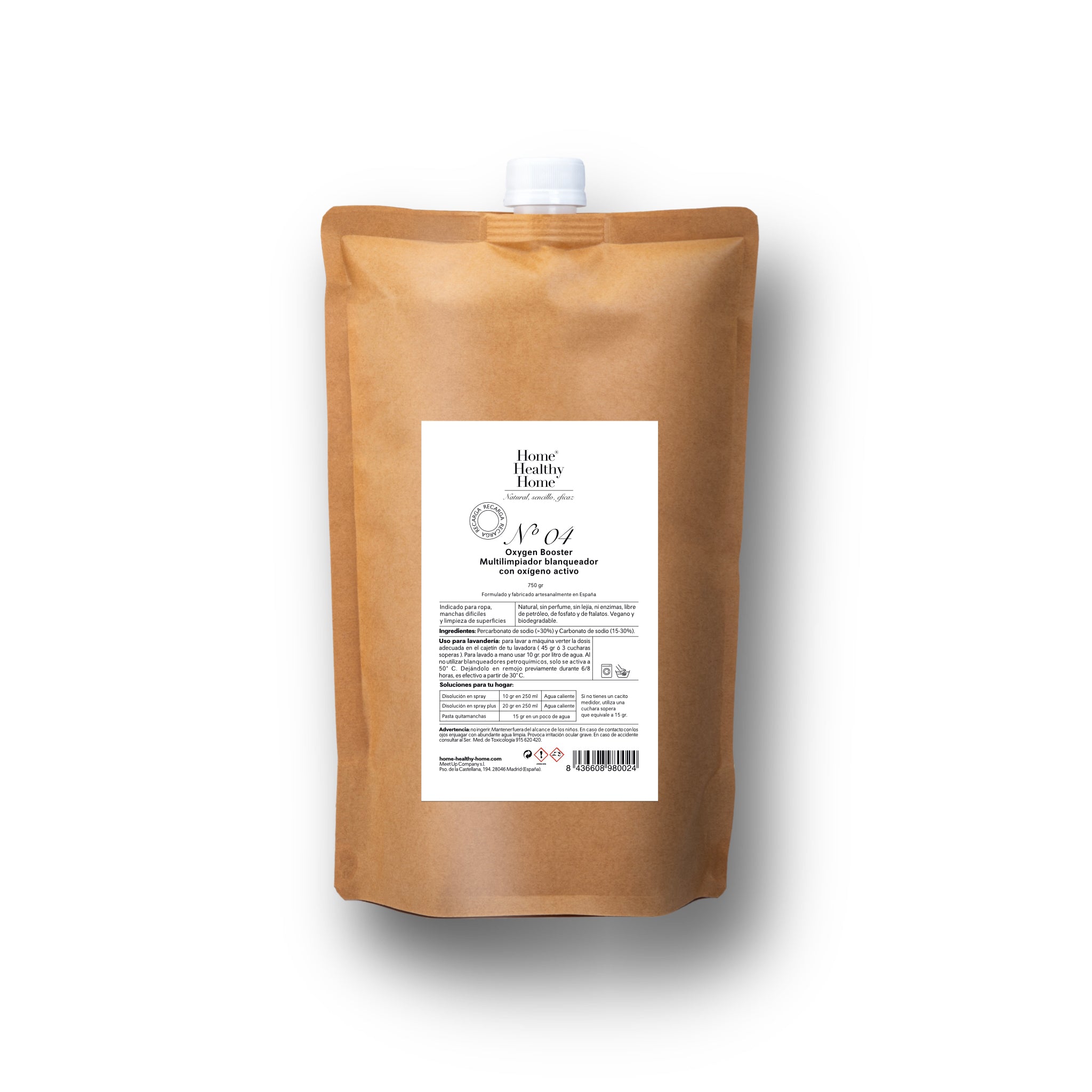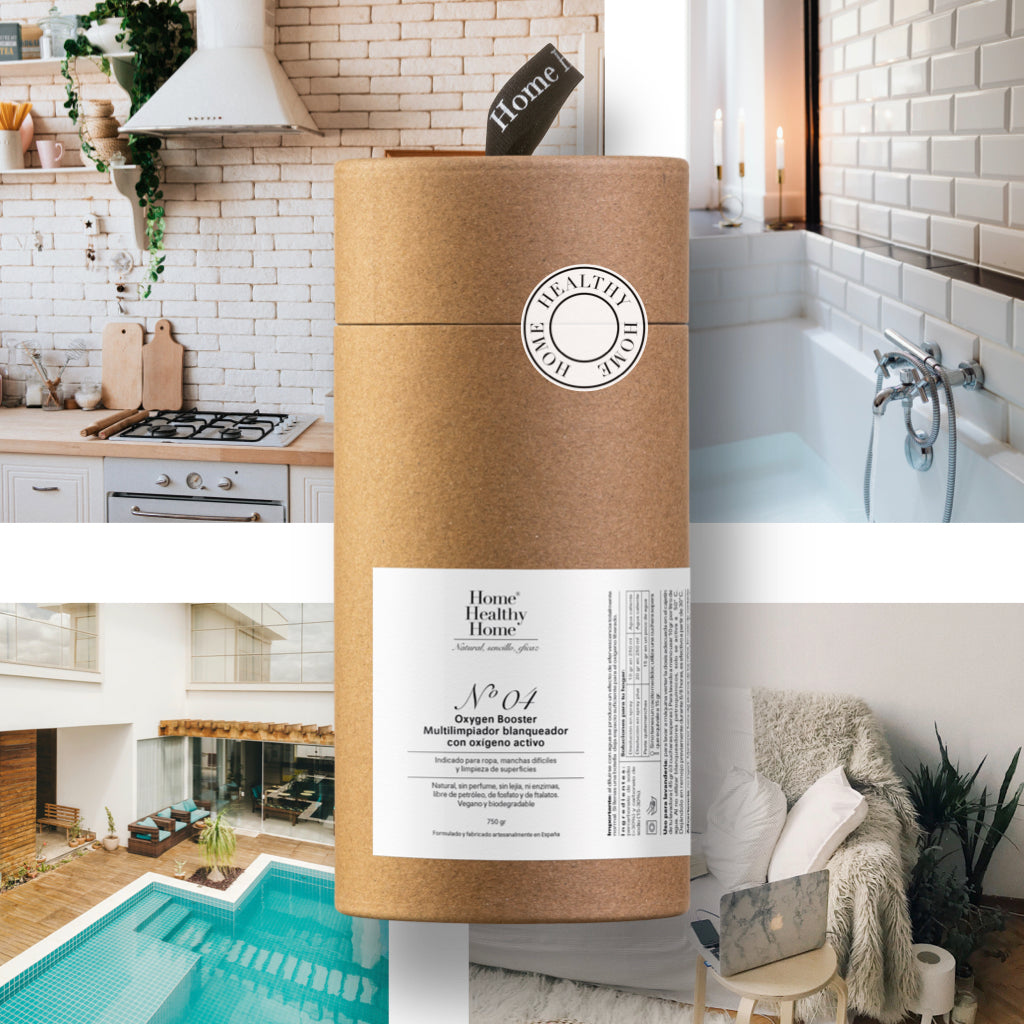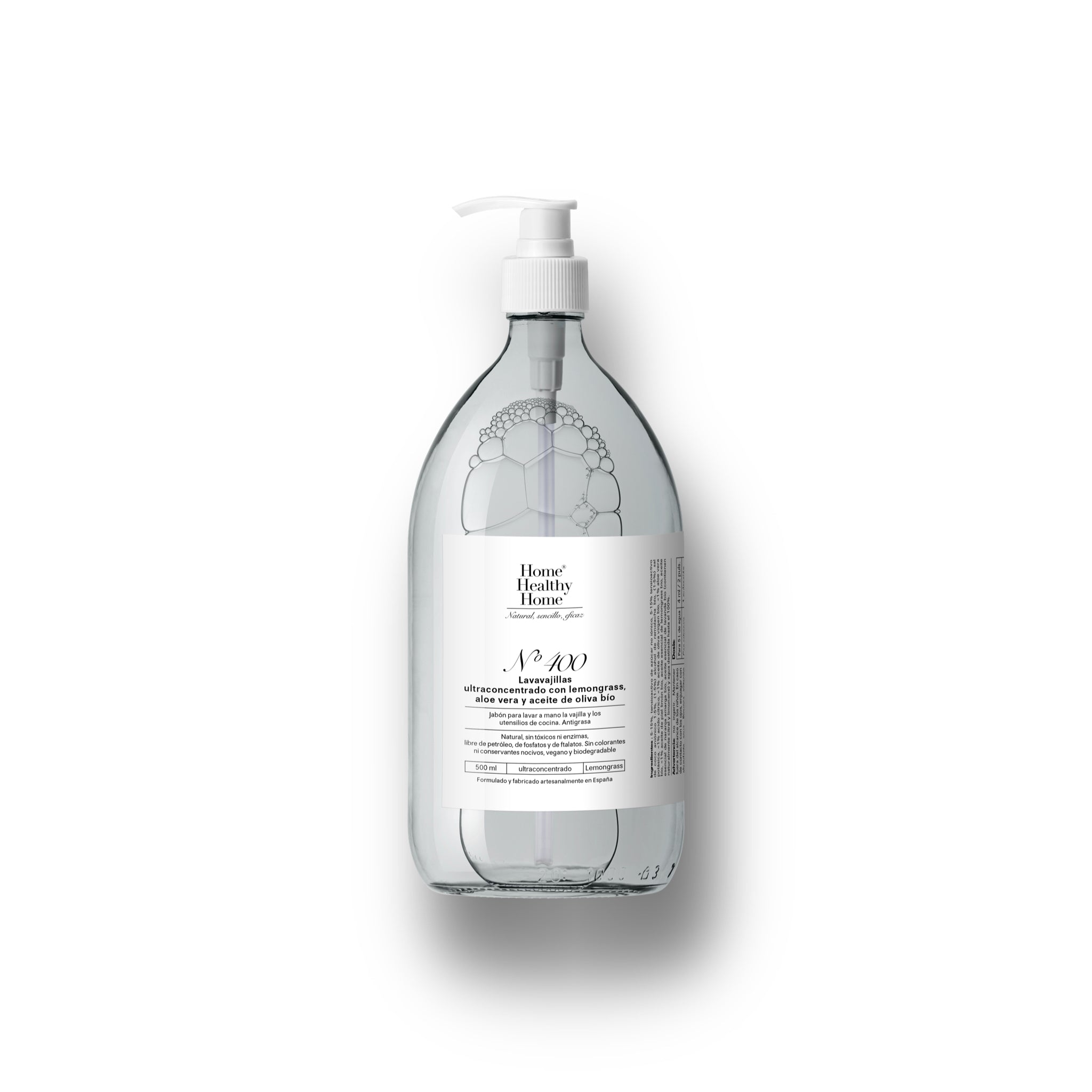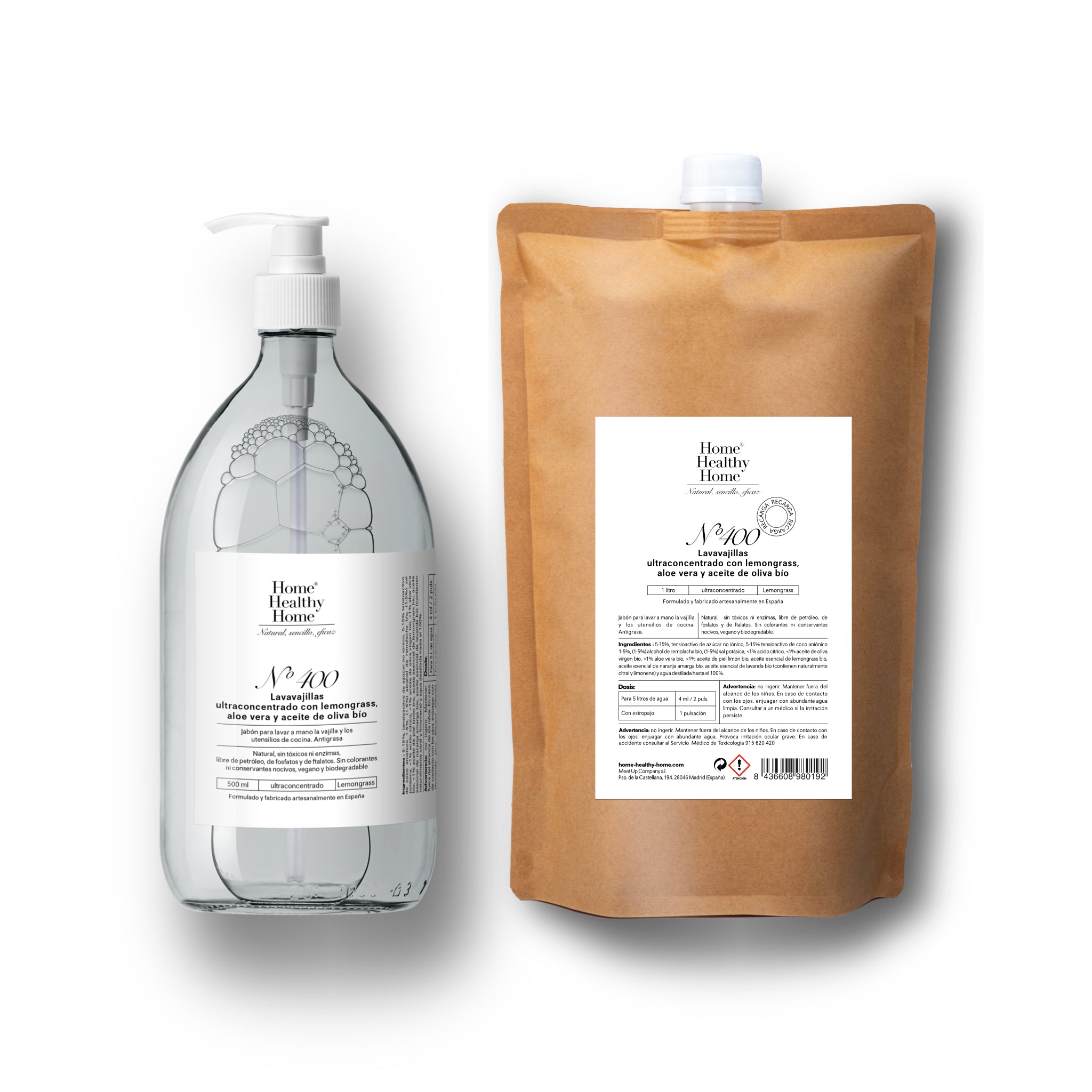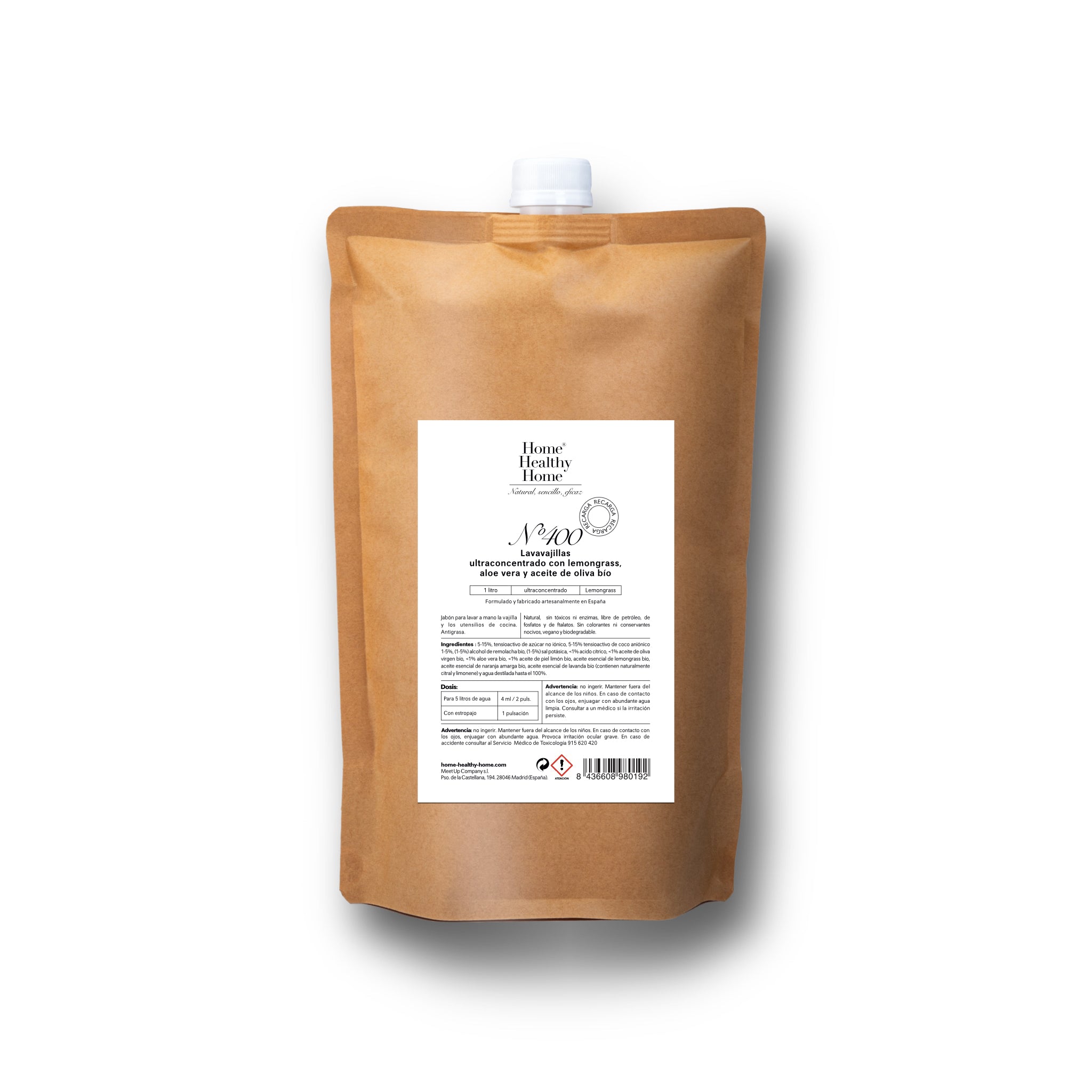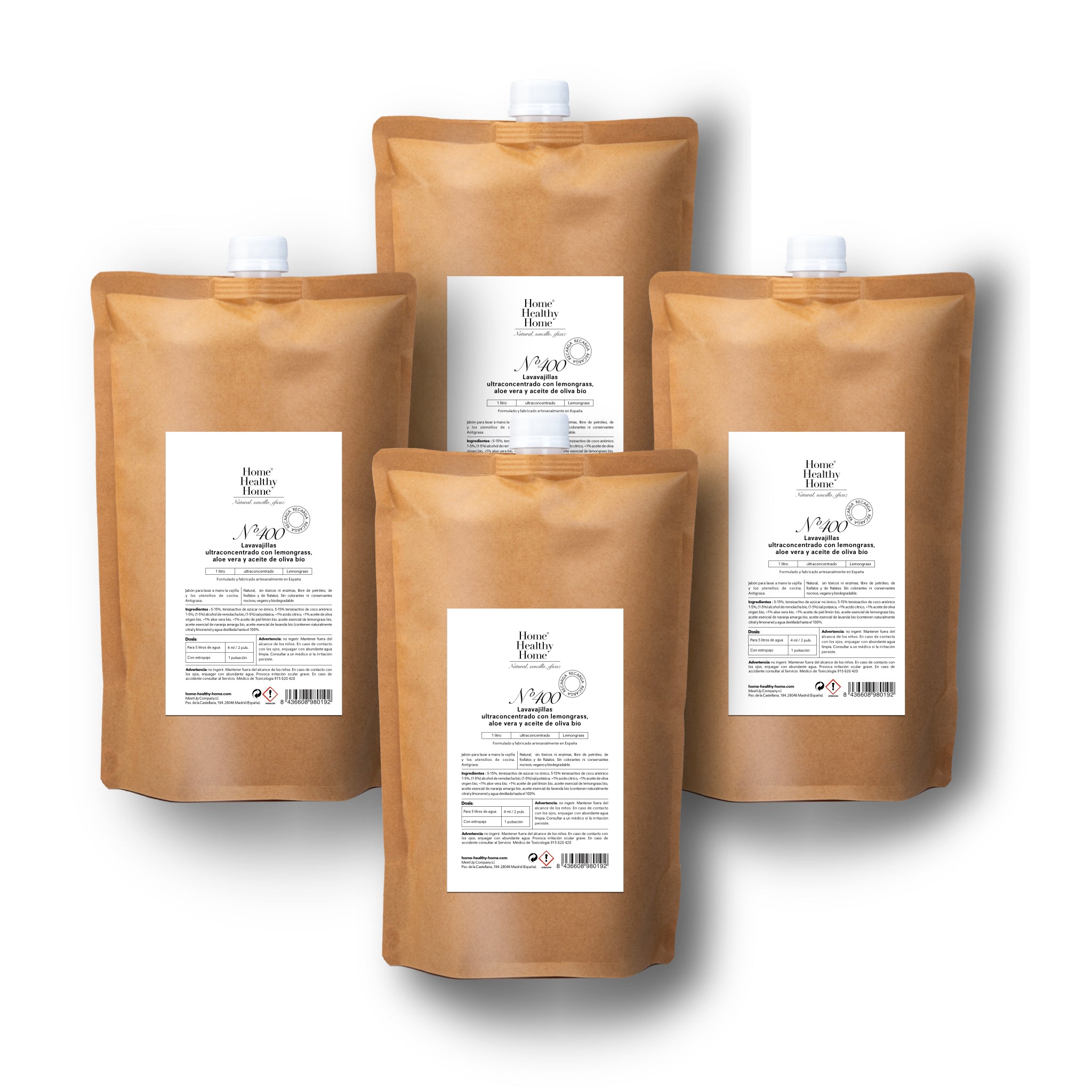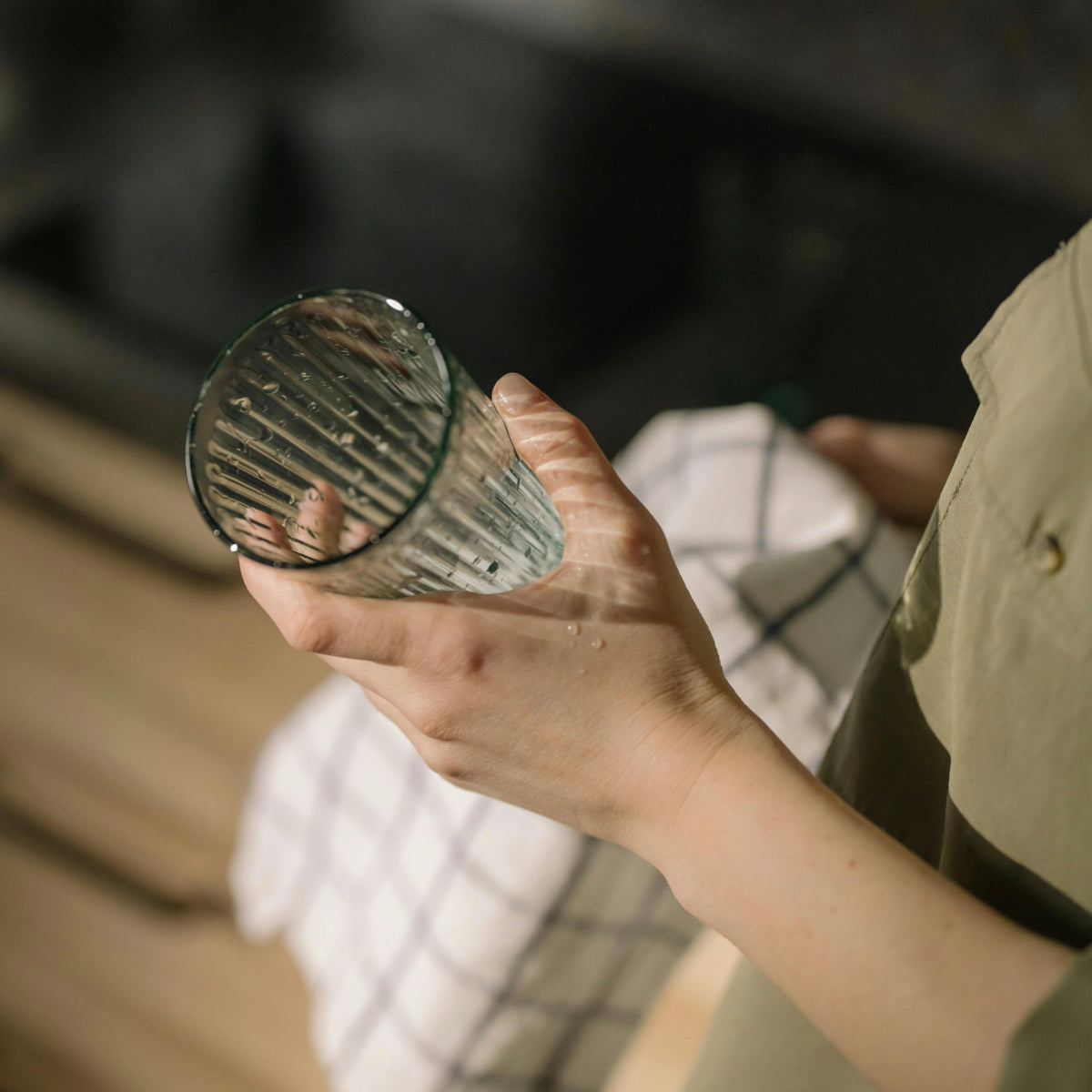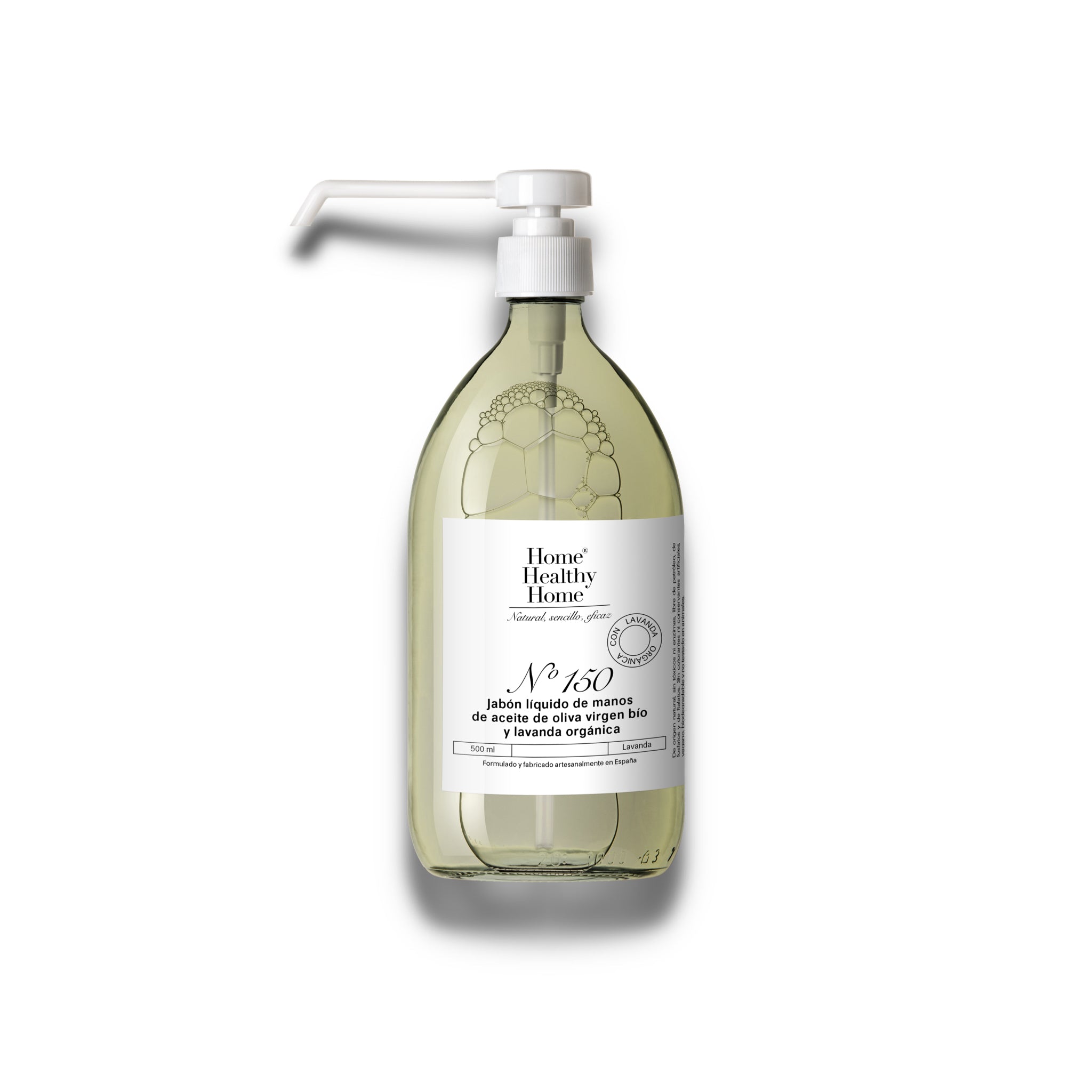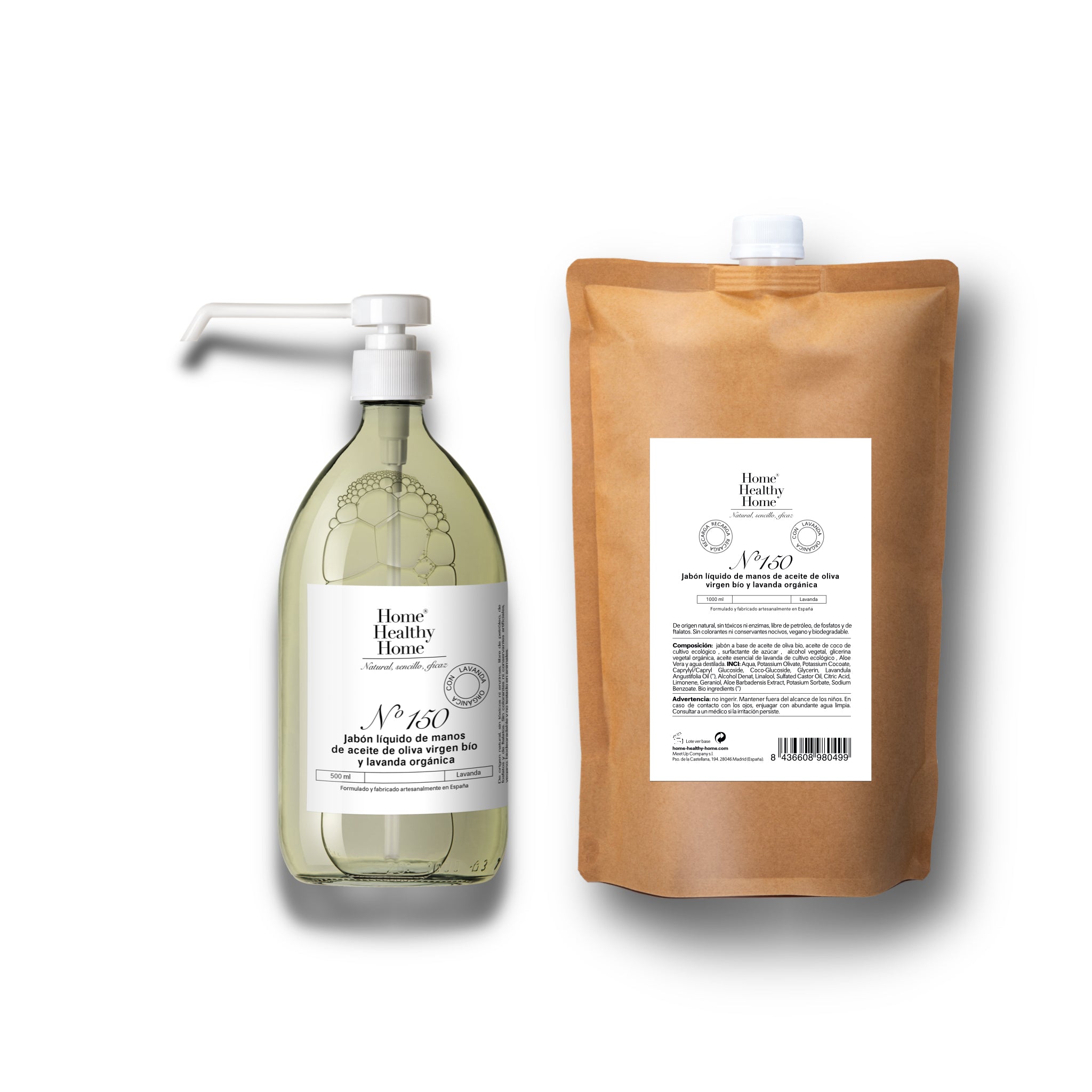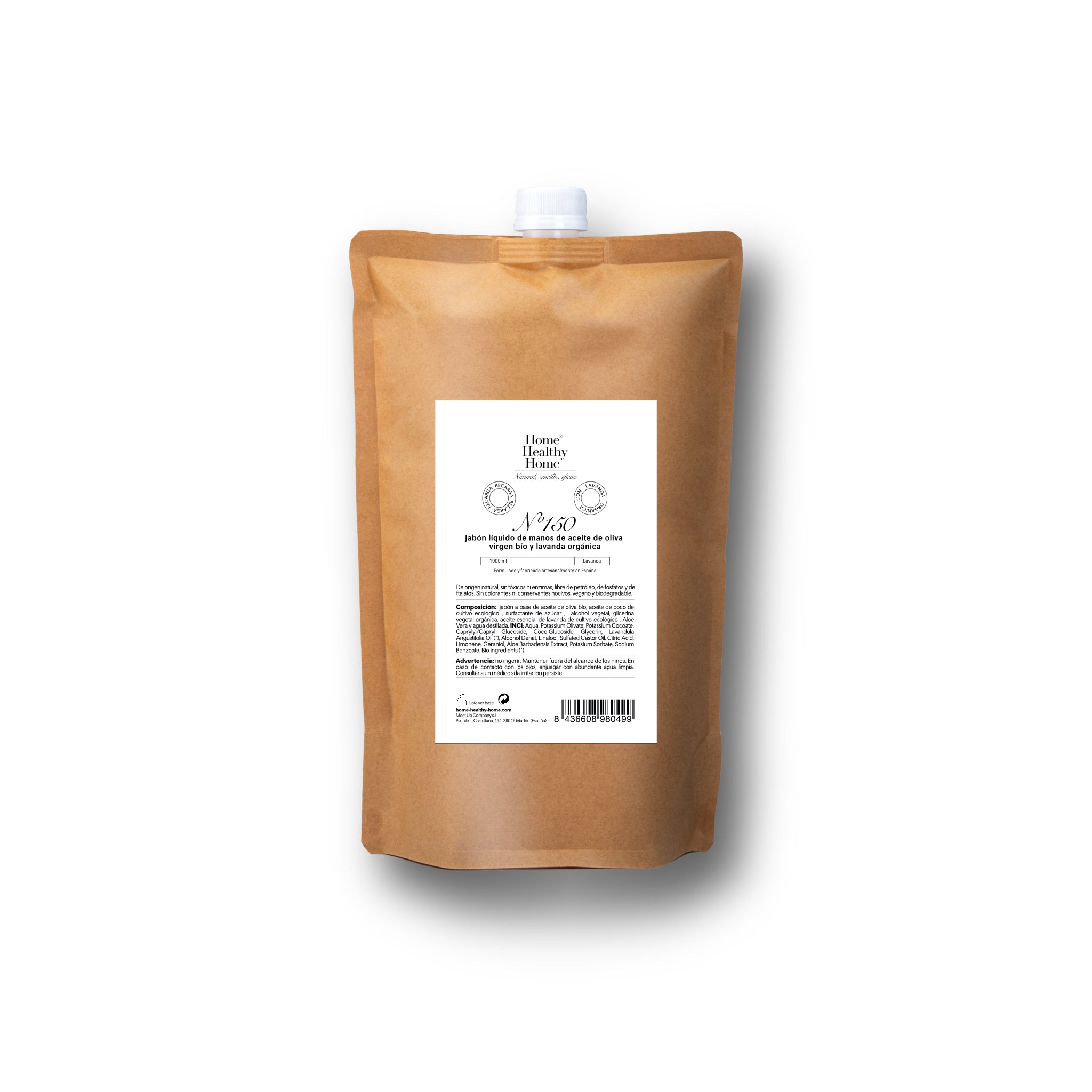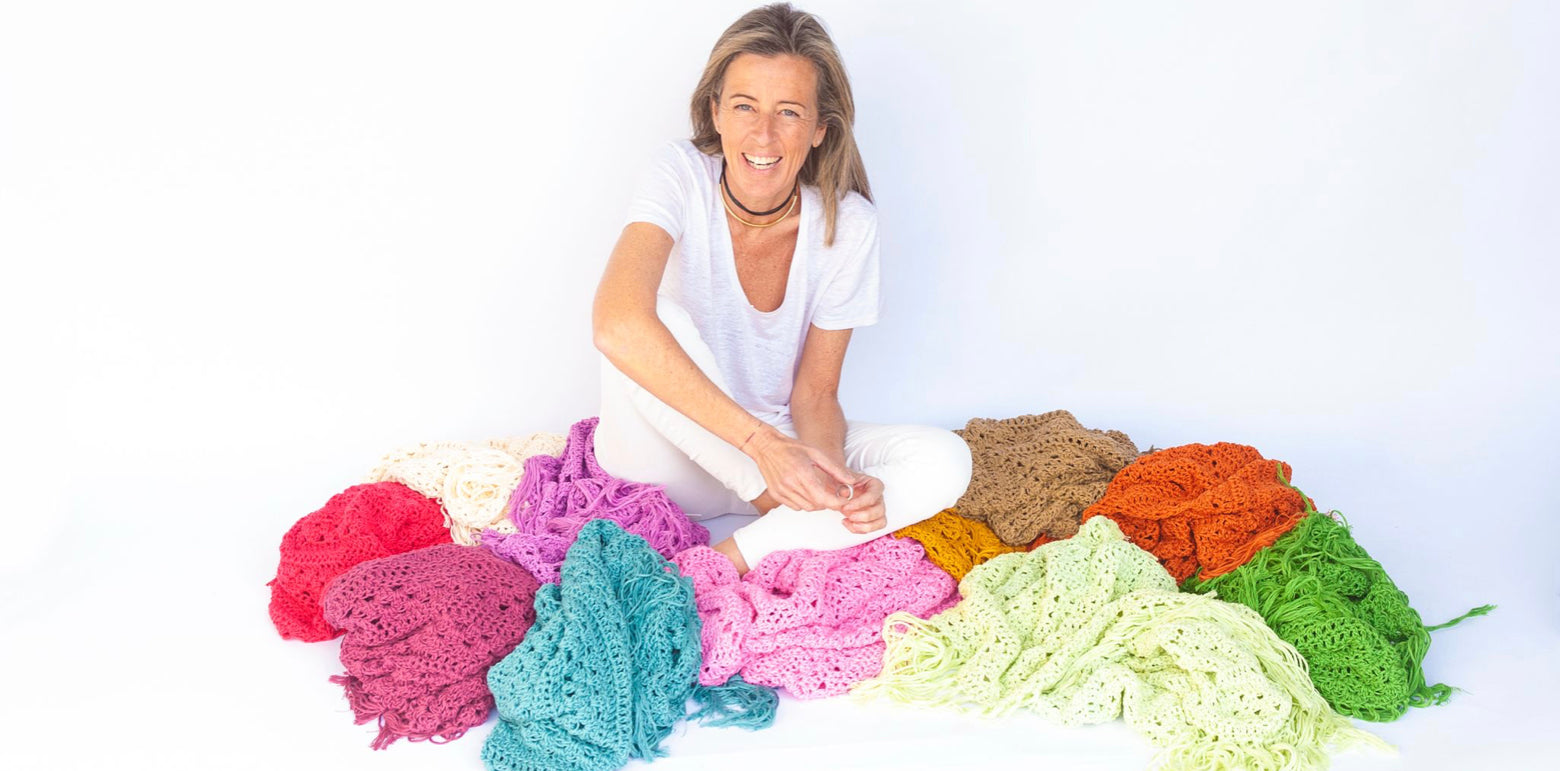Using conventional dishwashing detergents is a common practice in most homes, but what many people don't know is that these products can be loaded with toxic chemicals that linger on your dishes, glasses, and utensils. These residues, although invisible, can pose a health hazard, being absorbed through the skin or ingested with food. In this article, we'll show you the five most common toxins found in dishwashing detergents, how you can avoid them to protect your home and family, and some toxin-free options for a sustainable home.
Hidden dangers in dishwasher detergents
One of the biggest problems with conventional dishwashing detergents is the lack of transparency in their ingredient lists. Manufacturers aren't required to detail what compounds they include in their products, making it difficult for consumers to identify potentially harmful substances. Below, we present five of the most common toxins you should avoid in your dishwasher.
1. Ethanolamines (DEA, MEA, TEA): common carcinogens
Ethanolamines, such as diethanolamines (DEA), monoethanolamines (MEA), and triethanolamines (TEA), are chemical compounds commonly used in cleaning products to improve foaming and help mix soap with water. However, they have been shown to be known carcinogens, linked to the formation of nitrosamines, highly carcinogenic compounds. In addition to being present in dishwashing detergents, these substances are also found in all-purpose cleaners and personal care products.
DEA and TEA can easily penetrate the skin, and once inside the body, they accumulate in the liver and other organs, increasing the risk of cancer and other long-term health problems.
How to avoid it?
Check product labels and avoid those that include ethanolamines. Opt for natural alternatives that don't rely on these compounds for their effectiveness.
2. 1,4-Dioxane: A Hidden Carcinogen
1,4-Dioxane is a substance that forms as a byproduct during the manufacturing of certain detergents. It is a known carcinogen and neurotoxin, linked to skin, eye, and respiratory irritation. 1,4-Dioxane is not typically listed on labels, but you can identify it by looking for ingredients that include the "-eth" ending (such as laureth or sodium laureth sulfate), as well as other ingredients such as polyethylene glycol (PEG).
The main problem with 1,4-dioxane is that it is not completely removed during the rinsing process, meaning it can remain on dishes and glasses and then be ingested or absorbed through the skin.
How to avoid it?
Choose detergents free of ingredients that contain the "-eth" ending or that indicate the presence of PEG in their formulation.
3. Colorants: an unnecessary risk
Dyes are added to many dishwashing detergents to make them more visually appealing, but they have no value in terms of cleaning performance. These dyes, such as FD&C Blue or Yellow-5, have been linked to negative health effects, including behavioral disorders such as hyperactivity and, in extreme cases, neurodevelopmental problems and cancer.
In countries like the European Union, many of these colorants are banned due to their health risks, but they continue to be used in products marketed in the United States and other regions.
How to avoid it?
Choose detergents that don't contain artificial colors. Although the product may look less appealing without them, it's a much safer option for your health.
4. Formaldehyde: a toxic preservative
Formaldehyde, known for its preservative and antibacterial properties, is one of the most toxic compounds used in detergents and cleaning products. It is a recognized respiratory irritant and carcinogen that can be absorbed through the skin or inhaled during use. Although it is not always listed as formaldehyde on labels, it is frequently used in the form of "formaldehyde donors," such as DMDM hydantoin or bronopol.
This chemical has been linked to eye, skin, and respiratory irritation, and has been linked to the development of cancer in long-term studies.
How to avoid it?
Look for products that do not include preservatives such as DMDM hydantoin, bronopol, or any other formaldehyde donors.
5. Phthalates: dangerous endocrine disruptors
Phthalates are chemical compounds used to extend the life of synthetic fragrances in products like dishwashing detergents. These chemicals act as endocrine disruptors, interfering with the body's hormones and causing a range of health problems, ranging from reproductive difficulties to neurological disorders.
Most worrying is that phthalates are often hidden under the generic term "fragrance" on labels, making it difficult for consumers to identify their presence.
How to avoid it?
Avoid products that list "synthetic fragrances" or "perfume" on their labels. Look for detergents that use natural fragrances or are completely fragrance-free.
Tips for safer cleaning
Here are some tips to help you reduce your risk of exposure to toxins while washing dishes:
- Opt for products of natural origin : look for dishwashing detergents that contain ingredients of natural origin.
- Avoid unnecessary dyes : Dye-free detergents are just as effective and reduce your exposure to unnecessary chemicals.
- Clean your sink daily : The sink is one of the most likely places for bacteria like E. coli to accumulate. Keeping it clean can prevent germs from spreading to your kitchenware.
- Soak dishes : To save water and reduce dishwashing time, soak dishes in hot, soapy water before washing. This makes it easier to remove grease and food residue.
- Disinfect your sponges : Sponges and brushes harbor bacteria. Soak them in vinegar or microwave them to disinfect them and replace them regularly.
As for completely toxin-free and healthy options for us and our homes, we bring you two completely natural and effective products for cleaning our dishes:
Perfect for hand-washing your dishes, naturally. Formulated with 100% organic ingredients such as lemongrass, lemon peel, aloe vera, and olive oil. It effectively cleans your dishes, pots, and pans, capturing all the dirt, thanks to its powerful grease-fighting properties, while also being gentle on your skin and your home.
Formulated with only natural ingredients and organically grown essences. With a neutral pH and no harsh chemicals, this product is ultra-concentrated, vegan, biodegradable, and free of petroleum derivatives, harmful preservatives, and colorants.
These products are available in various eco-friendly formats, both in glass bottles of different sizes according to the needs of each household and in refillable formats to refill your products sustainably.
Natural Alternatives: Home Healthy Home
For those looking for a healthy and environmentally friendly alternative, at Home Healthy Home we offer completely toxin-free cleaning products. Our dish soaps are formulated with natural ingredients like organic olive oil and aloe vera, providing a deep clean without compromising your health or that of the planet.
With our solutions, you can rest assured that your home will be clean, without exposing yourself to dangerous chemicals.
Detoxifying your home starts with recognizing the hidden toxins in the products you use every day. Conventional dishwashing detergents are full of dangerous ingredients that can seriously affect your health and that of your family. Choose safe, natural, and chemical-free products for a healthier home.


